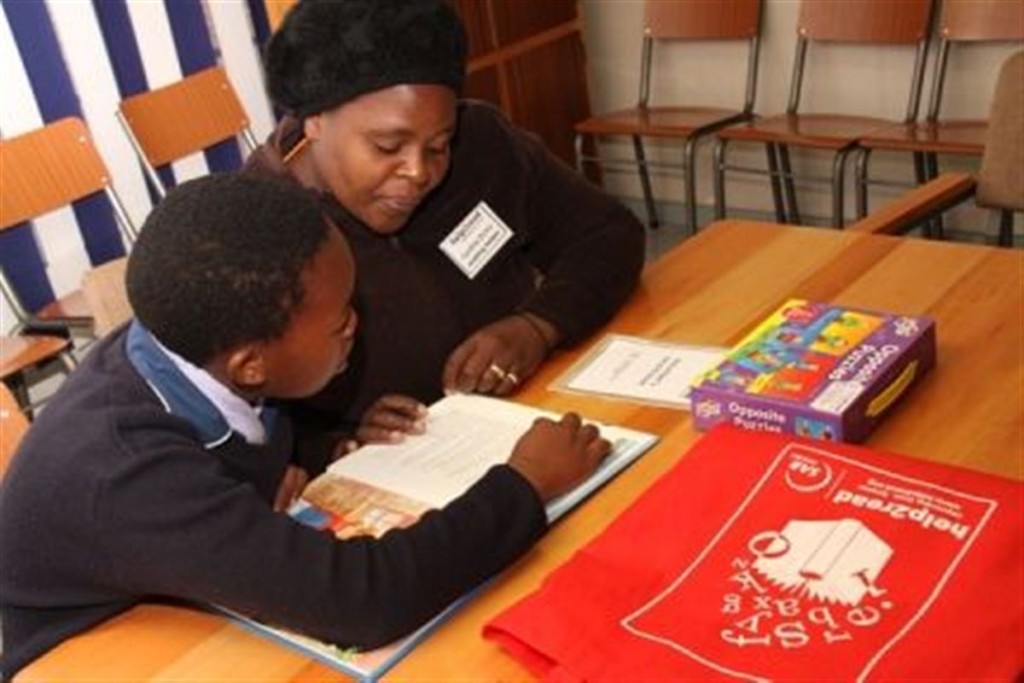I thought I would miss my flight. I was late, after all.
During the holiday season the airports were at their most crowded. The waits to pass through security were at their most unforgiving.
At the flight counter, I met a not quite blonde white American lady whose tone strained to speak above her education.
She couldn’t be bothered to answer my inquiry about my boarding pass, which the electronic machines—the ones that were one day poised to replace humans—would not print.
Surely this woman was in the customer service industry. She was paid to be hospitable, but she wasn’t, in her mind, compensated well enough to extend that courtesy to black people.
A kind African American woman came to my rescue. (Thank goodness for diversity!) It took her less than twenty seconds after typing in my last name, to print out my boarding pass.
With renewed hope, I sped off to see if I could somehow defy the forward ticking of seconds, at least enough to board my flight on time.
In this day and age, a stroke of luck from a good neighbor is hard to come by.
Besides rehearsed smiles and regurgitated words faint of meaning, what more can we expect from strangers? Strangers, itself, is a strange word, having once denoted people from foreign lands but today it could easily describe the devil next door.
Times like this make it unmistakably clear—like when a storm has passed and you can nearly see a path to the heavens—that time waits for no man.
The world is never silent, even when someone who we all agree is important dies.
So certainly you are alone in your trials, troubles, and minor inconveniences.
To my relief, and mine alone, the single door was propped open upon my arrival to the gate. A dozen or so passengers stood in a semi-circle, clutching luggage handles, awaiting their go-ahead signal.
Stepping onto the aircraft, the space between the plane and the boarding arm left a crack where a cool breeze seeped through to brush the rounds of my cheeks.
Greeting the pilot, I realized I had focused so much on meeting the plane that I hadn’t stopped to check my seat number.
3A.
The overhead bins above my seat were closed, so I moved towards the rear in search of an open bin when I heard a woman’s voice.
“Ma’am?”
It was a flight attendant.
Her shiny off-black curls bounced as she asked if I was seated in row three.
I nodded, and she motioned for me to return to the front. The bins were empty, she said, only she didn’t want the other passengers to use them.
My carry-on fit snugly between two athletic duffels.
The seat was wide and a deep midnight leather. My first guess was that I had scored a flight on a business plane where all passengers were created equal and seated comfortably.
Craning my neck to the rear, I noticed that the seats behind were made of a worn cloth that was washed too many times. There were three crammed to each side and not two.
I was in first class…?…!
Thanks to that kind African American woman.
I sat next to a woman, her skin paler than her ivory coat. Her slender nose assumed to know better than others.
She occasionally glanced towards the window, which was odd because outside was just a shade before dark and we were parked at the gate, hardly a milieu for sightseeing, but that nose seemed to be trying to figure out what I was doing there.
Someone with a fuzzy ponytail. A black woman who didn’t use a hot comb or wear a weave or tote a Louis Vuitton.
I didn’t need to develop Imposter Syndrome, her nose had gotten it for me.
I unscrewed the cap of my Merlot and poured half of the bottle into a miniature plastic cup. The woman next to me did not request a drink this time around. Perhaps she was even more unaccustomed than I was to the high life, because the next time around, she followed suit and selected an alcoholic beverage.
The plane taxied a few meters from the gate and then paused to join the queue of planes waiting to take off.
Relaxed from my propitious turn of events, I cracked open a novel, Half of a Yellow Sun. It was about 500 pages, give or take. I leafed through until about page 100 and then read a few passages here and there to see where I had last stopped. I couldn’t bring myself to spend three dollars on a bookmark that I knew cost ten cents, if that much, to make and one I would surely misplace.
The woman next to me turned in my direction with instant interest.
Her nosy eyes peered at the shape of the spine, the title, the length of my fingernails, the name of the Nigerian author I was certain she couldn’t pronounce.
What came next was never surprising but always amusing.
In just moments, she rummaged through her bag, a somewhat juvenile design with flowers in random arrangements, and pulled out a book, which she placed on her lap.
Unlike mine, hers was no critically acclaimed, literary trove, only pop culture fare: Star Wars: Heir to the Empire, the first book in a trilogy, written after the movies.
Her fingers gripped the book unknowingly like it was added to her bag as an after thought, after the crumped paper bag and empty strawberry milkshake container from McDonalds, which served a more explicit purpose—dinner.
The book, on the other hand, appeared to be something she felt impelled to carry along but secretly hoped she was never compelled to use.
It was with this reluctance that she gripped the soft paperback and searched for page one.
As readers know, the start of a new book can be rather trying. Each author has a different pace, turns of phrases, tone. It takes a while to immerse oneself into a book, to know the characters, to get into a groove where you can put them down and still remember.
To hold a newly opened book is a balancing act in itself, the weight on one side so much more than the other. The unevenness is like the first mile of a long journey. The road ahead is frighteningly endless.
More than once, she fanned the length of the book as if intimidated by its girth.
She also stole looks at me. Striving to match my every page turn with one of her own.
My reading was purely for pleasure.
Hers seemed to embody a duel, one that she called and, I, by virtue of sitting next to her, was subject to being a passive participant.
Her reading was agonizing.
She would close her eyes for long stretches and when they flung open, she would immediately open the book and attempt to pick up where she left off.
During those intervals of sleep, she refused to turn off her overhead light. To turn it off would mean that she lost. And she was not ready to lose, not to a black woman at least.
This was not the first time this has happened to me, or to my black friends, when a white woman or man sits next to them on a plane or bus and gets a sudden urge to read, but only when a black person first holds a book.
The more serious the book, the more pressing the itch to compete.
For me, there is a logical component to it. Books are very heavy. Any extra books in my carry-on add weight to my luggage. So if I have a book, I plan on reading it.
There is also the reality of our disparate life experiences.
Part of me wants to inform this white woman sitting next to me that she cannot read on my level. I read everyday, sometimes for my profession, often for pleasure.
I want to let her down easy and tell her: This is not for show. I am no novice.
I thought about other black professionals. Would a white person suddenly feel the need to challenge LeBron James to a one-on-one pick up game? Or play goalkeeper against Didier Drogba?
Probably.
Because for whatever reason, white people seem to have a complex that they are better than black people. In everything. No matter who, no matter what. Until they lose, they are not convinced of their mediocre status. And even after they lose, they sometimes remain in denial.
I thought about how I had “mistakenly” ended up in first class. But my next thought was that I should be in first class, just like Chris Rock said he should live in a neighborhood with other majorly successful people and not just next door to some regular white dentist.
I looked around at the ten or so ordinary white people and only one black man sitting around me in the luxury section and wondered what they had accomplished, if anything, that was dashingly different from the hundred or so in coach, to be able to afford a first class ticket.
Probably not much. (Except for the black man, of course.)
For some, life just assigns seats that way.
Eventually, she gave up.
She had probably read more in those ten pages than she had read all year. I doubt she will ever get to the second and third books in that trilogy, much less finish the first one.
Her side of the seat went dim.
I read another chapter or more.
Besides the roomier cabin, flying first class wasn’t much unlike coach, frequent flyers and longer excursions aside.
But for a two-hour trip, the only distinction was the two mini bottles of Merlot and a speedier departure from the plane.
But otherwise, no difference.
Especially regarding the people on the plane.
It seems that whether they sit in first class or coach, the white people I encounter are no different.













This is very refreshing. I have the same experience whenever I get on a flight. For some reason, some white fella always feels the itch to pick up a book as well. And they give up after about 30 minutes. Always!
A constant occurrence every time I travel through the States in America. Even on the train. When I pick up a book, some white person always picks ups a book, god knows why?
Sooo true! Worse, teenagers do it too. Who’s socializing these people this way? It’s like when I pick up a book to read on a plane in America, it’s like an invisible alarm comes on, alert! alert! alert! black person has picked up a book to read – you should too! It’s mind boggling because it happens every time, time again and time again.
Sometimes they make you think racism is just an institutional thing and no individual white person is a supremacist. Maybe this is what it is, white people are supremacists, not necessarily racists – it stems from that Christian belief that derives form the Judaic religions – exceptionalism! Black people reading on a flight undermine that exceptional belief. To resist it, a white person must pick up a book, a magazine, a newspaper, hell, the toilette roll. It doesn’t matter, just pick something up to read. It makes them feel better because most white people are just supremacists at heart.
“Part of me wants to inform this white woman sitting next to me that she cannot read on my level. I read everyday, sometimes for my profession, often for pleasure.”
LOL. Leave her alone, she wants to see how far she can go men. She just wants to know if she can really read at your level.
It’s a constant occurrence. If you are Black in America, you have to deal with ignorant and ordinary white folk who think and want to be better than you at every turn of the corner. I guess they deserve it because their men killed off the native Indians and enslaved Blacks here. So goes the story.
I love your banner picture of the girl reading the the concrete tubing.
Great journal. Very interesting to read this perspective on race in every day life. Flying first class with white people in America is definitely an experience!
“She also stole looks at me. Striving to match my every page turn with one of her own.” That is so on the money. I have had this happen every time on the plane.
These attitudes towards Black people must be engrained in Europeans at a very early age. I do not see how they come to behave exactly alike towards Black people. It’s sickening really.
Let us just say, whenever a black person picks up a book in the midst of
white folk, the general feeling there is to lynch the black person. I
guess because they can’t do that anymore, they are have to find a way
out – and the only way out it seems is to read a whole lot more!
Knee-jerk reaction you say!